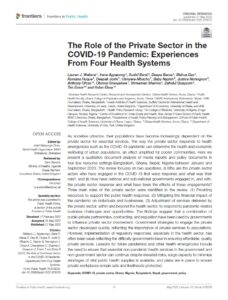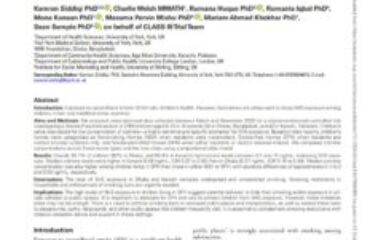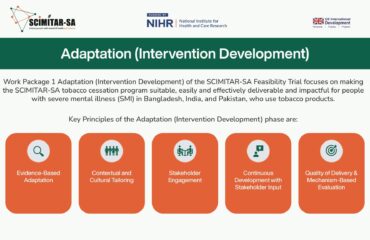
As societies urbanize, their populations have become increasingly dependent on the private sector for essential services. The way the private sector responds to health emergencies such as the COVID-19 pandemic can determine the health and economic wellbeing of urban populations, an effect amplified for poorer communities.
Here we present a qualitative document analysis of media reports and policy documents in four low resource settings-Bangladesh, Ghana, Nepal, Nigeria-between January and September 2020. The review focuses on two questions: (i) Who are the private sector actors who have engaged in the COVID-19 first wave response and what was their role?; and (ii) How have national and sub-national governments engaged in, and with, the private sector response and what have been the effects of these engagements? Three main roles of the private sector were identified in the review. (1) Providing resources to support the public health response. (2) Mitigating the financial impact of the pandemic on individuals and businesses. (3) Adjustment of services delivered by the private sector, within and beyond the health sector, to respond to pandemic-related business challenges and opportunities.
The findings suggest that a combination of public-private partnerships, contracting, and regulation have been used by governments to influence private sector involvement. Government strategies to engage the private sector developed quickly, reflecting the importance of private services to populations. However, implementation of regulatory responses, especially in the health sector, has often been weak reflecting the difficulty governments have in ensuring affordable, quality private services. Lessons for future pandemics and other health emergencies include the need to ensure that essential non-pandemic health services in the government and non-government sector can continue despite elevated risks, surge capacity to minimize shortages of vital public health supplies is available, and plans are in place to ensure private workplaces remain safe and livelihoods protected.
NOTE: The study in Nepal, Nigeria, and Bangladesh was part of CHORUS funded by UK Aid, from the UK Government, Grant 301132 (involving HE, TE, MD, OO, RH, JN, SB, ZQ, DB, CM, BN, AO, SS, DJ, and IA). In Ghana (involving LJW, IA, AO, and JN) the study was funded jointly by IDRC, Grant 109479 as part of the CATALYSE project (Exploring and learning from evidence, policy and systems responses to COVID-19 in West and Central Africa) and UK Aid as part of CHORUS (Community-led Responsive and Elective Urban Health Systems). The funders had no role in study design, data collection and analysis, decision to publish, or preparation of the manuscript.




